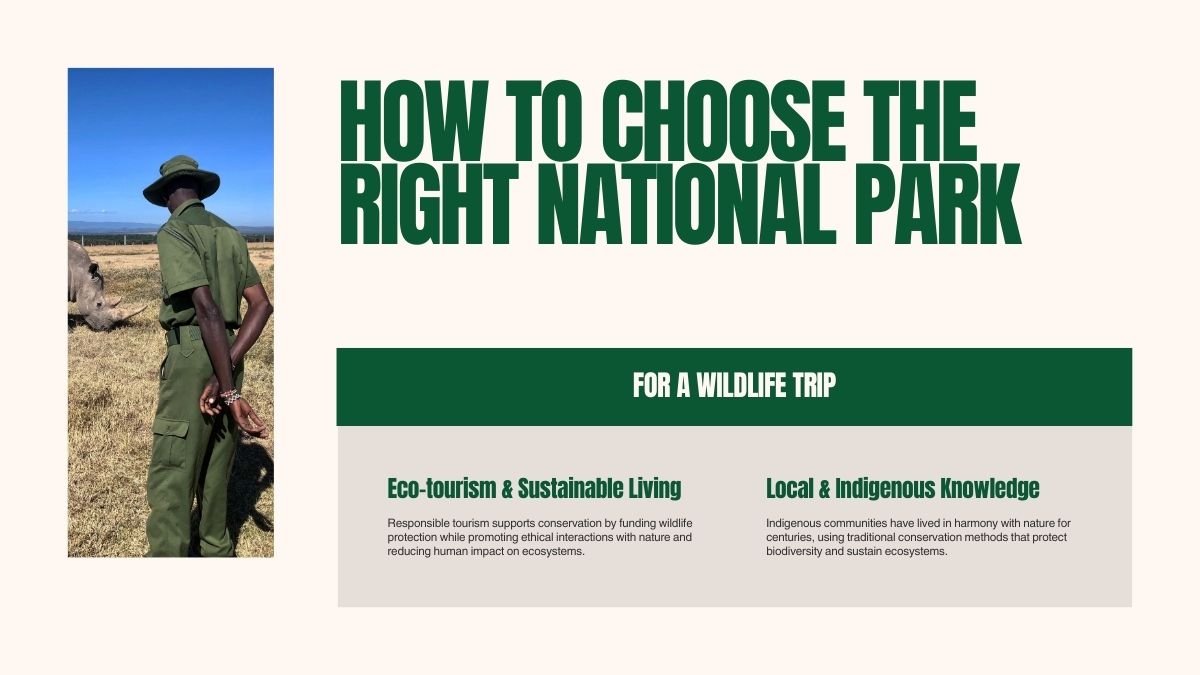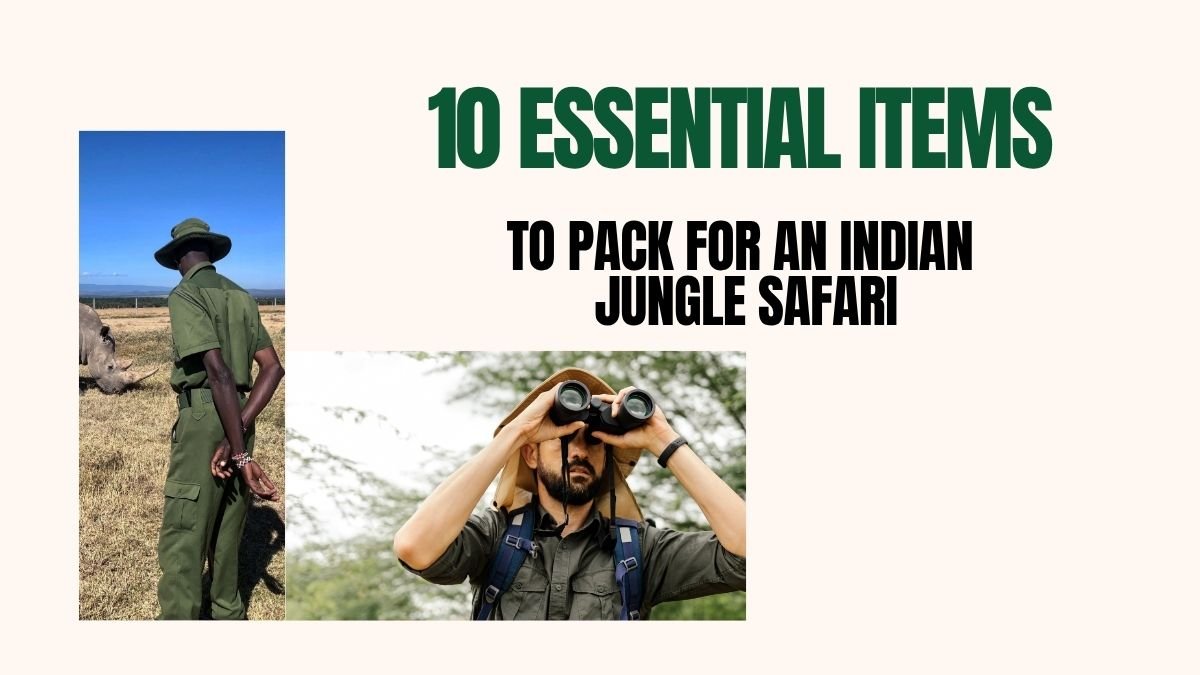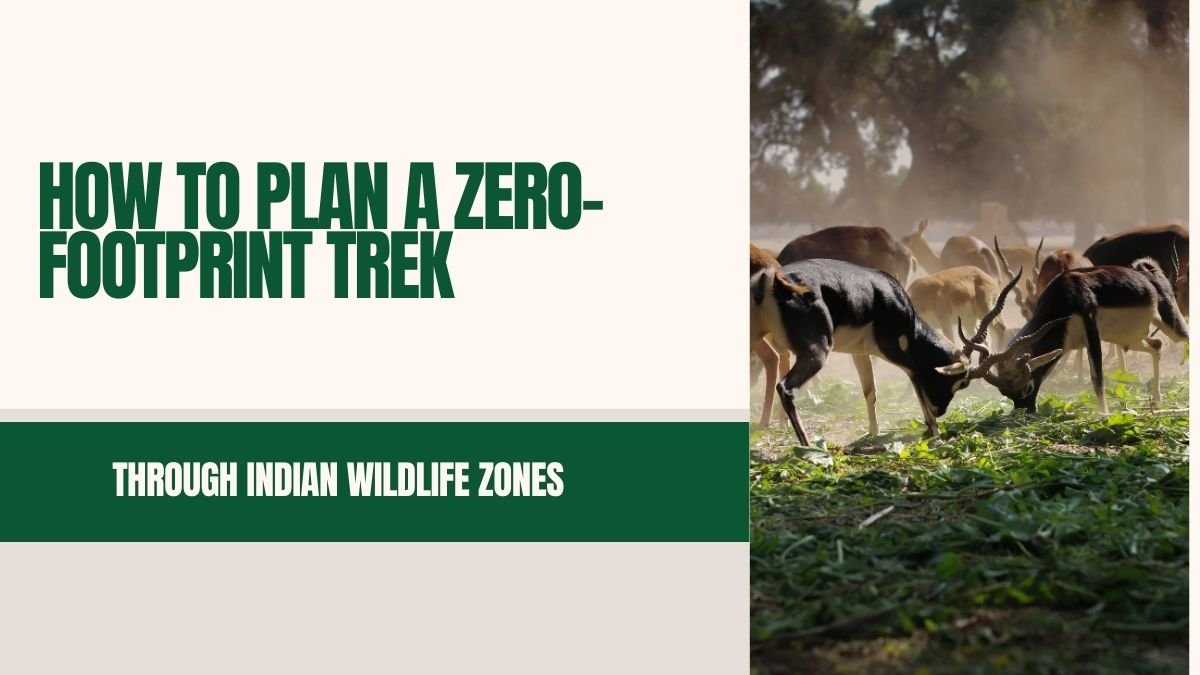Complete Guide: Choosing the Right National Park
Planning a jungle safari or wildlife trip is thrilling, but selecting the right national park is crucial for a memorable experience. The choice depends on your interests, wildlife preferences, season, safari options, and travel facilities.
Let’s explore in detail how to make the best choice.
1. Decide on Your Interests and Priorities
Wildlife Focus
- Determine what you want to see: tigers, elephants, rhinos, rare birds, or just enjoy natural scenery.
- Examples of species-specific parks:
- Tigers: Ranthambore, Bandhavgarh, Kanha
- One-Horned Rhino: Kaziranga, Assam
- Asiatic Lions: Gir, Gujarat
- Elephants & Barasingha: Kanha, Bandhavgarh
- Birds: Sundarbans, Chilika Lake
Tip: For first-time tiger safaris, Ranthambore offers a high chance of sightings and observing behavior.
Scenery & Landscape
- Some travelers also prioritize picturesque landscapes: lakes, rivers, hills, and greenery.
- Examples:
- Hills & forests: Sinhagad, Satpura
- Birdwatching: Kanha, Bhimashankar
2. Know Unique Wildlife of the Park
- Certain parks are famous for specific species.
- Tiger: Ranthambore, Bandhavgarh, Kanha
- One-Horned Rhino: Kaziranga
- Asiatic Lion: Gir
- Elephants & Barasingha: Kanha, Bandhavgarh
- Birds: Sundarbans, Chilika Lake
Tip: Research online, read travel blogs, or check visitor reports to align expectations.
3. Logistics: Location and Facilities
Accessibility
- Consider road, rail, or air connections, travel time, and costs.
- Examples:
- Ranthambore (Rajasthan) – Accessible via Jaipur and Sawai Madhopur railway stations
- Kaziranga (Assam) – Closest airport: Guwahati; safari by road
Climate & Weather
- Monsoon season (June-September) often closes parks.
- Optimal safari season: October–February (cool and pleasant)
- Examples:
- Kaziranga – March-May: Rhinos near water for easy sightings
- Gir – December–March: Best season to watch lions
4. Trip Length and Experience
Trip Length
- Short trips (1-2 days): Smaller parks or nearby options
- Longer trips (3-5 days): Bigger parks with multiple safari options
Safari Options
- Jeep Safari: Most flexible; reach multiple locations
- Elephant Safari: Unique height perspective
- Boat Safari: Ideal in river or lake-rich parks
Accommodation
- Lodges, resorts, or eco-friendly camps need advance booking, especially during peak seasons.
5. Permits and Booking
- Safari permits are required in most parks and are often limited.
- Online booking makes it easier.
- Tip: Book permits and accommodation together and avoid weekends or holidays for less crowd.
6. Guides and Guidance
- Experienced guides enhance the safari experience:
- Share animal behavior and park insights
- Increase chances of sightings
- Guide you safely close to wildlife
Example: A guide might know the active hours of tigers or lion dens, improving your viewing chances.
7. Ability and Safety
- Follow all forest rules:
- Do not leave the vehicle
- Avoid loud noises, bright colors, or unnecessary sounds
- Carry water, sunscreen, and electrolyte packs for hydration
8. Extra Tips
- Study the park map and main routes before your trip
- Carry a good camera or binoculars
- Opt for morning and evening safaris when animals are most active
- Respect the forest and contribute to its conservation
Conclusion
Choosing the right national park is the first step to a memorable safari.
- Select wildlife and scenery according to your interests
- Consider season, weather, and safari types
- Book accommodation and permits in advance
- Hire an experienced guide and follow safety rules
Without preparation, a safari may be enjoyable but less rewarding. With careful planning, your jungle adventure can become a once-in-a-lifetime experience.









